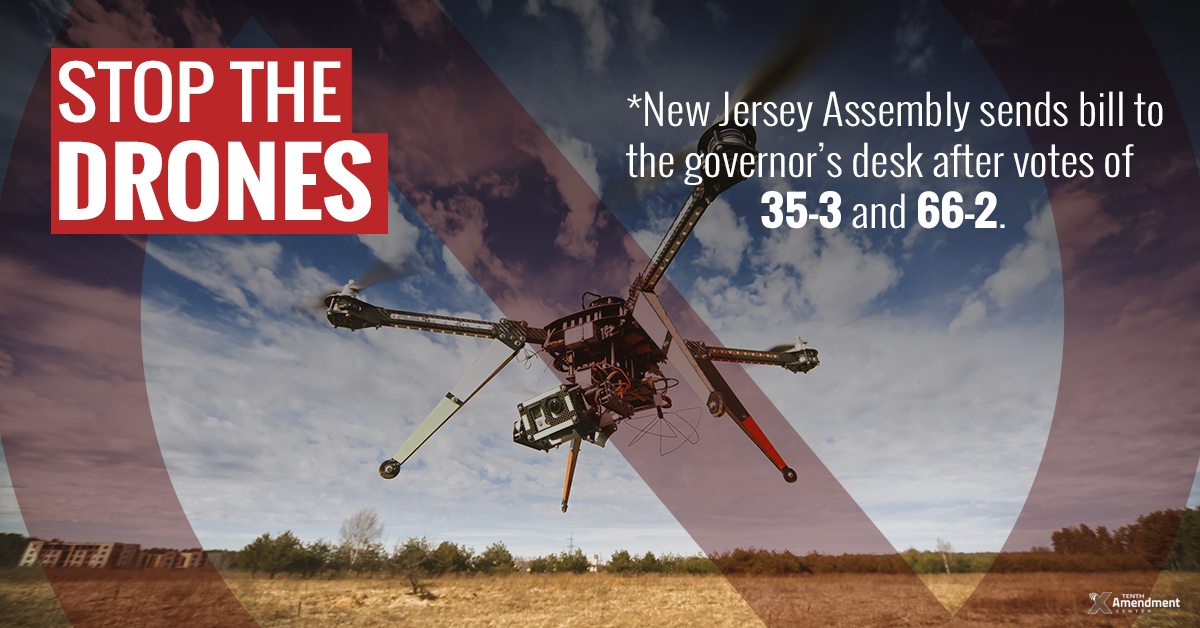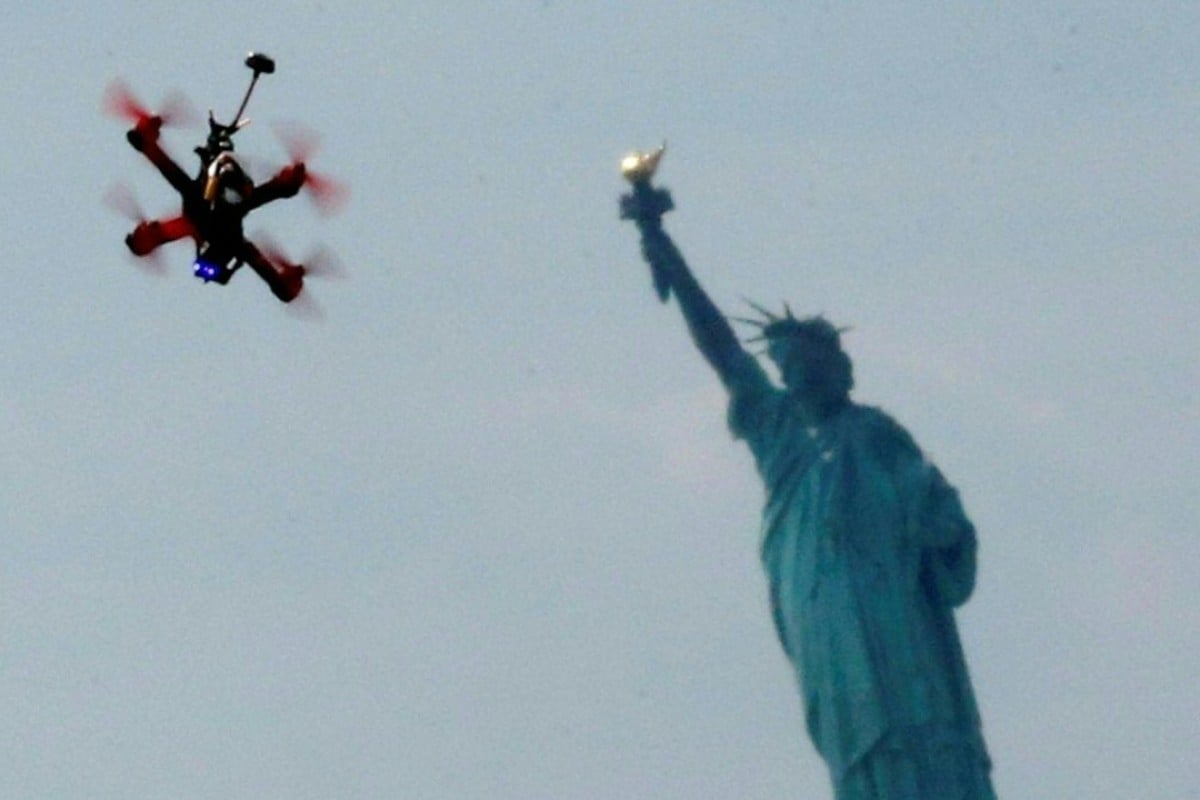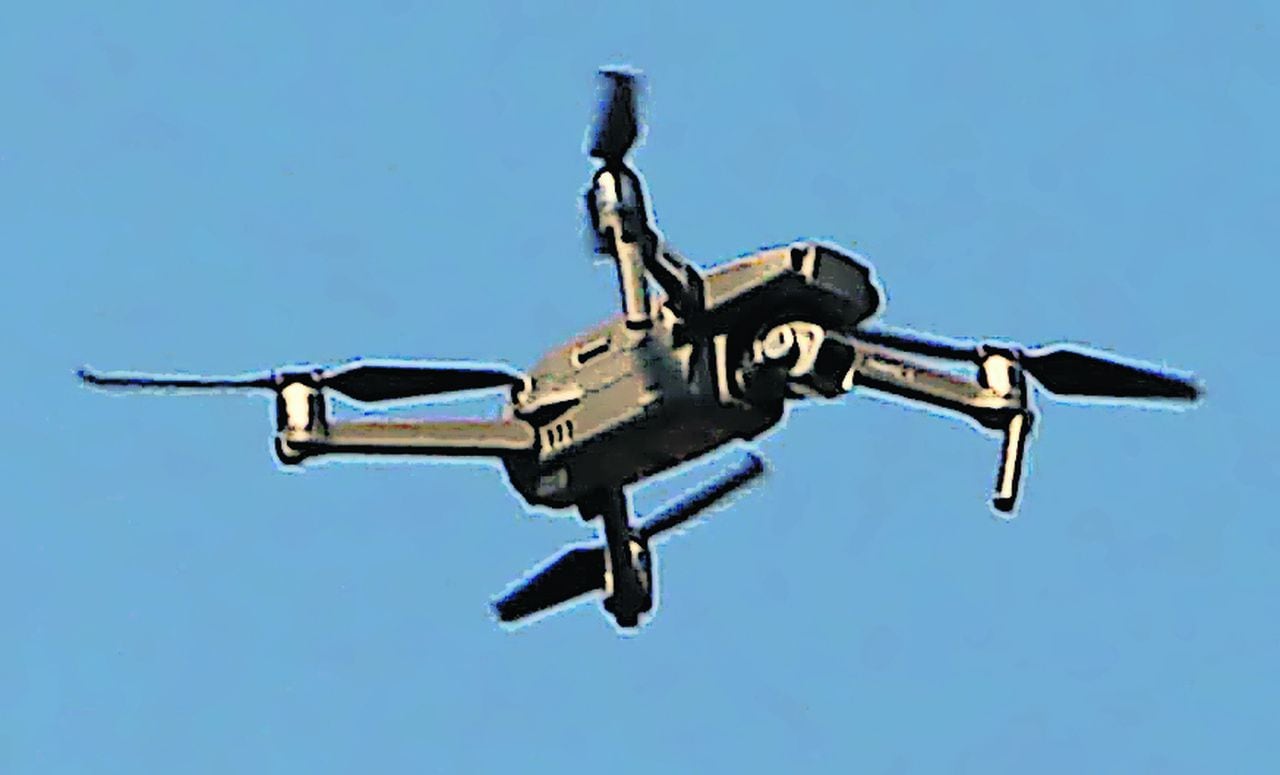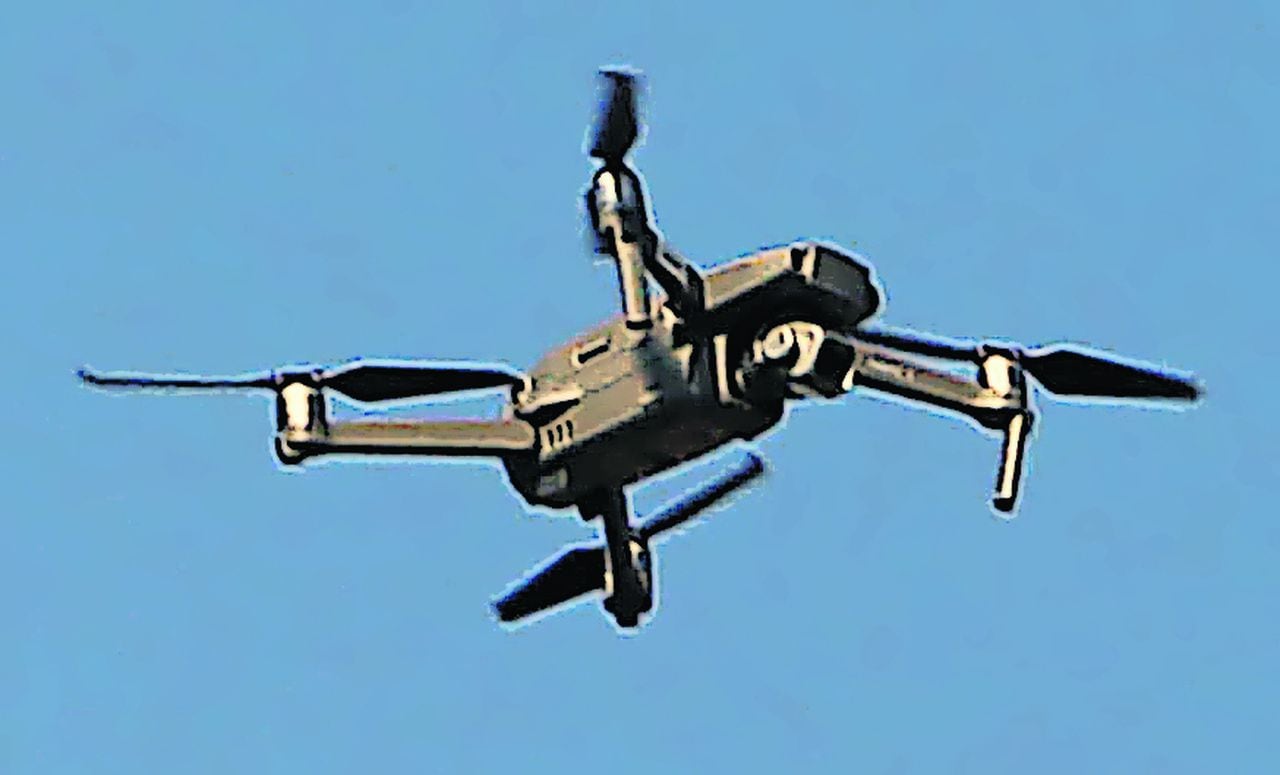Drones Over New Jersey Solved: This investigation delves into the recent surge of drone incidents across the Garden State, exploring the diverse types of drones involved, the law enforcement responses, public perception, technological solutions, and the evolving legal landscape. We analyze the challenges and successes in managing unauthorized drone activity, offering a comprehensive overview of this complex issue.
From near misses at airports to privacy concerns among residents, the increasing presence of drones in New Jersey’s airspace has raised significant questions. This analysis examines specific incidents, highlighting the technological advancements used to detect and counter unauthorized drones, alongside the legal frameworks designed to regulate their use. We’ll explore both the potential benefits and the inherent risks associated with this rapidly evolving technology.
Drone Incidents Over New Jersey: A Comprehensive Overview

The increasing prevalence of drone technology has brought both benefits and challenges to New Jersey. This report examines recent drone incidents, analyzes law enforcement responses, explores public perception, and discusses technological solutions and legal frameworks governing drone operations within the state. We will also look at potential future implications of this rapidly evolving technology.
Recent Drone Incidents in New Jersey
The past year has witnessed a noticeable increase in drone-related incidents across New Jersey. While precise figures are difficult to obtain due to reporting inconsistencies, several significant events highlight the growing concerns.
| Date | Location | Description | Outcome |
|---|---|---|---|
| October 26, 2023 | Newark Liberty International Airport | A drone was spotted flying near the airport’s airspace, causing temporary flight disruptions. | The drone was eventually located and its operator identified; FAA investigation is ongoing. |
| August 15, 2023 | Atlantic City | A large commercial drone malfunctioned during a filming operation, resulting in minor property damage. | The operator was fined and required to complete additional safety training. |
| June 10, 2023 | Princeton University | A small hobbyist drone was observed flying over restricted campus areas, raising concerns about security. | University security issued a warning; no further action was taken. |
| March 5, 2023 | Trenton | A drone carrying suspected contraband was intercepted near a correctional facility. | The drone was confiscated, and an investigation is underway. |
| January 20, 2023 | Route 1, Edison | A drone collided with a utility pole, causing a brief power outage. | The operator was held responsible for the damage and repair costs. |
The incidents demonstrate a diverse range of scenarios, from near misses at major airports to deliberate misuse for illegal activities. The overall trend suggests a need for stronger regulations and more effective countermeasures.
Types of Drones Involved in New Jersey Incidents

The incidents involved a variety of drone types, each presenting unique risks and capabilities. Understanding these differences is crucial for effective regulation and response.
- Commercial Drones: Larger, more sophisticated drones used for photography, videography, inspections, and delivery services. They possess advanced features but can also pose significant risks if improperly operated, leading to accidents or privacy violations. The potential impact includes substantial property damage and safety hazards.
- Hobbyist Drones: Smaller, less expensive drones used for recreational purposes. While generally less capable than commercial drones, they can still cause issues if flown irresponsibly near airports or other sensitive areas. The potential impact includes minor property damage and airspace disruption.
- Unauthorized/Illegal Drones: Drones used for illicit activities such as smuggling contraband or surveillance. These pose a serious threat to security and public safety. The potential impact includes security breaches, crime facilitation, and potential harm to individuals.
Law Enforcement Response to Drone Activity
New Jersey law enforcement agencies employ various methods to address unauthorized drone activity, but face significant challenges.
Methods include visual detection, radio frequency detection, and coordination with the Federal Aviation Administration (FAA). However, technological limitations such as limited range and interference, coupled with legal constraints on surveillance and intervention, often hinder effective response.
Hypothetical Scenario: A drone is detected near a power plant. Law enforcement uses radio frequency jamming to disable the drone’s control signal, while a specialized team deploys a net-launcher to safely capture the drone. Simultaneously, investigators trace the drone’s signal to identify the operator.
Public Perception and Concerns Regarding Drones
Public sentiment towards drones in New Jersey is mixed, reflecting a range of perspectives and concerns.
While some appreciate the potential benefits of drones in various sectors, many express concerns about privacy violations, potential security threats (particularly near critical infrastructure), and the potential for accidents. A significant portion of the population feels a lack of transparency regarding drone operations and data collection.
Narrative: A local resident expresses concern about drones constantly flying over their neighborhood, while a business owner highlights the advantages of using drones for efficient delivery services. This illustrates the diverse viewpoints that need to be considered when formulating drone regulations.
Recent concerns about unauthorized drone activity over New Jersey seem to have been resolved, thanks to improved monitoring and stricter regulations. Understanding the causes of these incidents requires examining the broader issue of drone safety, and unfortunately, this includes looking at instances like those detailed in this report on drone crashes in New Jersey. Addressing such crashes is crucial to maintaining safe airspace and ensuring the continued responsible use of drones across the state.
Technological Solutions and Countermeasures

Several technologies are used to detect, track, and counter unauthorized drone activity. Their effectiveness varies depending on factors such as drone type, environment, and technological advancements.
Example: Radio Frequency (RF) detection systems work by detecting the radio signals used to control drones. These systems can pinpoint the drone’s location and potentially disrupt its operation. A step-by-step explanation: 1. Sensors detect RF signals. 2.
The recent rash of unauthorized drone flights over New Jersey seems to be resolved, thankfully. Authorities are investigating the specifics, but the incidents highlight the need for responsible drone operation. For those interested in acquiring a drone for legitimate purposes, exploring options like those available at drone with camera retailers is advisable, ensuring compliance with all regulations to prevent future disruptions.
This will help keep our skies safe and prevent similar situations in New Jersey.
Software analyzes the signals to identify drone type and location. 3. A signal jammer can be deployed to disrupt the drone’s control. However, these systems have limitations, such as susceptibility to interference and the potential for unintentional disruption of legitimate drone operations.
Legal Frameworks and Regulations
Drone operation in New Jersey is governed by a combination of federal and state laws, primarily focused on safety and security.
Current regulations often lack clarity regarding specific use cases and enforcement mechanisms. Gaps exist in addressing the increasing use of drones for commercial purposes and the potential for misuse. Amendments could include clearer definitions of authorized airspace, stronger penalties for violations, and a more streamlined process for obtaining permits.
Future Implications and Predictions, Drones over new jersey solved
The future of drone technology in New Jersey promises both significant advancements and potential challenges.
- Increased integration of drones into various sectors, including delivery services, infrastructure inspection, and emergency response.
- Advancements in drone technology leading to greater autonomy, enhanced capabilities, and improved safety features.
- Development of more sophisticated counter-drone technologies to address security concerns and mitigate risks.
- Ongoing debate and refinement of legal frameworks to balance innovation with public safety and privacy concerns.
- Potential for increased public acceptance and understanding of drone technology through education and outreach initiatives.
The proliferation of drones in New Jersey presents a multifaceted challenge demanding a comprehensive and adaptable approach. While technological advancements offer promising solutions for detection and countermeasures, effective regulation and public education are crucial for mitigating risks and fostering responsible drone use. A collaborative effort involving law enforcement, policymakers, and the public is essential to ensure the safe and beneficial integration of drone technology within the state.
Top FAQs: Drones Over New Jersey Solved
What penalties exist for illegal drone operation in New Jersey?
Penalties vary depending on the violation but can include hefty fines and potential criminal charges.
Can I fly a drone over private property in New Jersey without permission?
No, you generally need the property owner’s permission to fly a drone over private property.
Are there specific no-fly zones for drones in New Jersey?
Yes, areas near airports, critical infrastructure, and other sensitive locations are typically designated as no-fly zones.
Where can I find more information about New Jersey drone regulations?
Consult the Federal Aviation Administration (FAA) website and the New Jersey State Police website for the most up-to-date regulations.
